« July 2010 | Main | September 2010 »
August 31, 2010
At Duke: "So maybe Dr. Potti meant he was a Dusty Roads Scholar?"
Hey, it could happen. From the acclaimed 105-year-old muckraker, lie-catcher, and star-hatcher, Duke's daily The Chronicle :
Resume Reveals Inconsistencies
By Tulia Rushton
For almost a year, accusations have slowly mounted against Duke cancer researcher Dr. Anil Potti. First, questions were raised about his scientific discoveries. Then, a cancer research newsletter pointed out problems with his resume, drawing new scrutiny to his work.
Now, a Duke investigation led by Provost Peter Lange has found “issues of substantial concern” in Potti’s resume and biographical sketches, and both internal and external investigations into Potti’s research are being planned, according to a Duke News release issued Friday. [more]
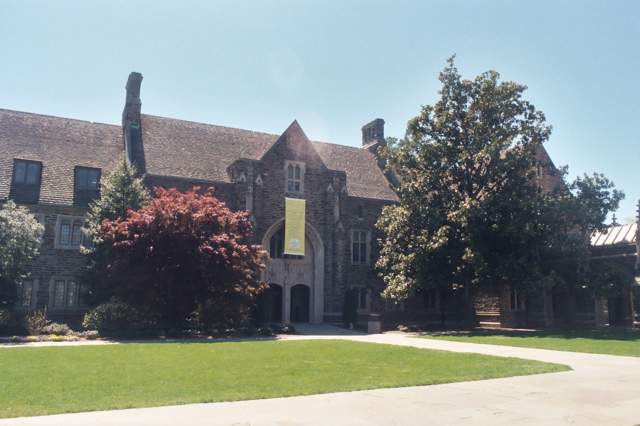
Flowers Building
Posted by JD Hull at 12:24 AM | Comments (0)
August 29, 2010
NYT Photo of the Decade
Of comrades Paulson, Bernanke & Geithner taken in late 2008. It gets better all the time.
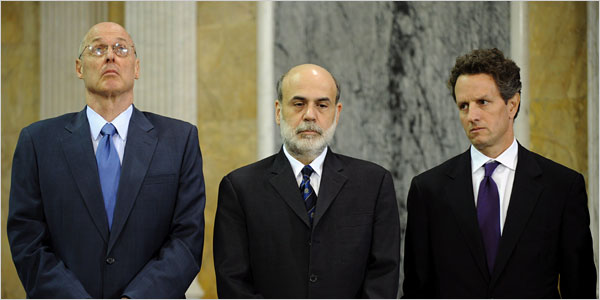
Matthew Cavanaugh/European Pressphoto Agency (October 2008)
Posted by Holden Oliver (Kitzbühel Desk) at 02:57 PM | Comments (0)
August 27, 2010
Making plays: Point guard Bernanke on 1.6% "crawl" in Q2
Getting "unconventional" is fine with us, Ben. Have at it. AP: "Fed Consider Another Large Purchase of Securities". In part:
JACKSON HOLE, Wyoming — Federal Reserve Chairman Ben Bernanke said Friday that the Fed will consider making another large-scale purchase of securities if the slowing U.S. economy were to deteriorate significantly and signs of deflation were to flare.
The Fed chief offered his most extensive thoughts yet on how to pull the U.S. economy out of a deepening slump. His remarks came 90 minutes after the government said the economy slowed sharply in the second quarter to a 1.6 percent pace.
"I believe that additional purchases of longer-term securities should the FOMC [Federal Open Market Committee] choose to undertake them, would be effective in further easing financial conditions." he said.
The other two options he laid out are:
--Providing more information in the Fed's post-meeting policy statements about how long Fed policymakers would continue to keep rates at record lows. For more than a year, the Fed has been pledging to hold rates at ultra-low levels for an "extended period."
--Cutting to zero the interest the Fed pays for banks to keep money parked at the Fed. That rate is now 0.25 percent.
Posted by JD Hull at 11:59 PM | Comments (0)
August 26, 2010
Ted Kennedy
Ted Kennedy died on August 25th last year; the following is our post on the day after:
Nearly everyone I am close to lives in a time zone ahead of mine. Except my friend Ellen who called me about 11:15 PT last night and told me. Even with a fifteen months' "heads up" about Ted Kennedy having brain cancer, I was stunned that Kennedy--the only one of Joe Kennedy Sr.'s four boys to not die violently and young--had died. So this did hit me. My first vote for a Republican presidential candidate ever last November--John McCain--was not the sea change in my ideas, instincts or emotions I had thought. I don't expect anyone under 45 or so to understand. Below is exactly what we wrote last year, on May 22, 2008, in this post, the day after it was disclosed that Kennedy was ill:
To be Irish is to know that, in the end, the world will break your heart.
--Daniel Patrick Moynihan
Call me a cultural stereotype. A boomer. A limousine liberal. I don't care. Ted Kennedy being diagnosed with malignant cancer of the brain floored me. I don't even know why. Long ago, Duke University, which changed my life in a number of ways, awarded me my first paid desk job to work for Wisconsin's Senator Gaylord Nelson. With some help from my father, I rented an overpriced and horrible little apartment across the street from the hospital on Washington Circle where I had been born 21 years earlier, and excitedly entered the world I'd been seeing on television since I was in my early teens growing up in the Midwest. That first sunny Monday morning in May, I walked all the way to work, zig-zagging down Pennsylvania Avenue, and then up Constitution Avenue, well over two miles total, just to take it all in.
But I walked in a hurry.
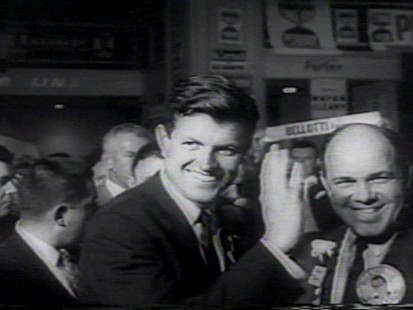
Edward Moore Kennedy (1932-2009)
The Hill job was in health policy, and I was asked to follow and report on the work of the busy U.S. Senate Subcommittee on Health, chaired by then 42-year-old Ted Kennedy. I saw Kennedy up close a lot during committee sessions and mark-ups during the next 3 months. (A few years later, I worked again on Capitol Hill, and lived there for many years. I'd see him around. Today, if I were lucky, he might recognize my persistent face if he saw me--but I certainly wasn't important those first 3 months.) But way before that, as the "last Kennedy", he was always part of the soundtrack of my life and my friends' lives since we were in our early teens. But he was more than a name, mystique and the booming populist oratory and Gaelic cadences of speech which come naturally to him.
For me, Ted Kennedy has never been about ideas, legislative agendas or even the Kennedy schmaltz: the hope, the dream that never dies, the struggle, all that. He left that music to others, like to his uber-aggressive brother-in-law, Steven Smith, and to his staff. I just never saw Kennedy as an ideologue, even when he ran for the American presidency--which I bet he never really wanted. A character out of a novel, he's simply as Irish as they come: brooding, playful and contradictory. Quietly but definitely war-like. He's smarter than people think, and remarkably adept at sifting through and making sense of too much information thrown at him.
In the main, though, he's passionate, human, even poetic--and vulnerable in all the best ways.
Like lots of senators, he's also distracted as hell, even endearingly spacey--but warm and charming, a natural politician, easily the best in his family. He can turn that on and off. Like Bill Clinton, and for whatever the reason, Kennedy genuinely likes people; it's not for show. Watch the guy in a crowd. He's at ease once he's there. He physically resembles most, and is most like, his mother Rose, the family saint and caregiver. And that soulfulness, I think, helped him to be very good at his job. Family friend and economist John Kenneth Galbraith once said that Ted Kennedy was the best U.S. senator he'd seen in his lifetime.
Finally, the last Kennedy is as wounded as they come, too. Try, if you can, not to cry when you watch a clip of his eulogy of his brother Robert in 1968, when he was 36. Kennedy's voice cracked badly, and I can't forget the sound of him as he struggled to finish the speech for his older brother. It wasn't about politics, ideas, or even about anyone's family. The sound was pure grief and loss, unashamed.
See in New York Times "Edward Kennedy, Senate Stalwart, Dies".
Posted by JD Hull at 11:59 PM | Comments (0)
August 25, 2010
The Economist on Rod Blagojevich: "Can I get a witness?"
See "The Never-Ending Swansong". Excerpt:
The verdict was the latest anticlimax in what has been a disappointing summer for rubberneckers. After declaring his eagerness to testify, Mr Blagojevich did not take the stand. His lawyers subpoenaed several leading Democrats, including Rahm Emanuel and Valerie Jarrett.
In the end, though, the defence produced a grand total of no witnesses. Conspiracy theories abound, but the most realistic explanation is that the lawyers concluded that further testimony would only help the prosecutors.
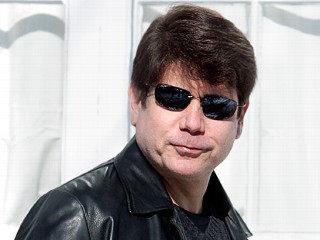
Not exactly Jefferson, Stevenson, Lugar. It's Chicago, Jake.
Posted by JD Hull at 11:51 PM | Comments (0)
August 23, 2010
Seattle, August, fish-tossing, the usual.
Ten years ago, the fun surrounding Pike Place Market fish-tossing spawned a popular business workplace book.

Posted by JD Hull at 12:34 PM | Comments (0)
August 19, 2010
The Fed: U.S. industrial production up 1% in July
Construction, retail sales and hiring may still be sluggish. But things could be worse, and there are some promising numbers. See the Federal Reserve's August 17 release.

Posted by Holden Oliver (Kitzbühel Desk) at 08:59 PM | Comments (0)
Know the Customers.
Learn the stock price, industry, day-to-day culture, players and long-term goals of the client. Visit offices and plants. Do it free of charge. Learn and keep learning about it. Devise a system to keep abreast.
Rule 7: Know the Client is from our world-famous if nettlesome--we're right about this stuff, so just get over it, and do it--12 Rules. "Client service", by the way, is not about being "nice" to clients. Think of it as (1) a weaving of substance and relationship, (2) a dance, (3) the most difficult discipline you'll master and (4) a hard-acquired "habit"--one over time that is doggedly yet happily repeated. Without it, no one cares you wrote the BNA article, or Matthew Bender tome, on promissory estoppel against the government. Just doesn't matter.
Posted by Holden Oliver (Kitzbühel Desk) at 12:59 AM | Comments (0)
August 13, 2010
Dillingham
Once the salmon capital of the world (fish farms ended that), Dillingham, Alaska is a stop-over for sports fishermen, wildlife lovers, bear studiers, bush pilots, extreme camper-hikers, "square pegs" and fed-up spouses in the lower forty-eight who went out one day for a pack of Marlboros and never came back. A point of endings and beginnings, it is also the entrance to a remote, roadless and eerily beautiful part of the world. The town itself (pop. 2,500) is on Nushagak Bay, an inlet of Bristol Bay, in the Bering Sea. Dillingham was named in 1904 after U.S. Senator Paul Dillingham, who had toured Alaska extensively as part of his committee work in Congress.
Posted by JD Hull at 04:08 PM | Comments (0)
August 12, 2010
Seattle's August.
The weather here in August is hard for Midwesterners and Easterners to believe. It's one of the few U.S. cities with decent and often perfect weather in the maddening month of August, the cruelest month elsewhere, and named in 8 BC after Augustus, or Octavian, the Roman emperor, as a tribute to his pluck and wonderfully grandiose empire-building. August is not otherwise an austere or fun month for many Americans--ask someone in sticky Chicago, St. Louis, Cincinnati or DC--unless you're headed to Maine, or maybe to the fells of the Lake District in England. But Seattle waits for it all year long, and then gloats a little.

Pike Place Market, 1911
Posted by JD Hull at 03:50 AM | Comments (0)
August 11, 2010
Eric O'Neill: More home-grown threats in the American 'hood.
Above: Adnan Shukrijumah, possibly the new head of global operations for Al Qaeda. Hear the ensuing Fox News interview last week with lawyer, ex-FBI agent and real life spycatcher Eric O'Neill of The Georgetown Group. Did you ever wonder about that one guy in your Computer Club back in high school?
Posted by Holden Oliver (Kitzbühel Desk) at 02:27 PM | Comments (0)
August 07, 2010
Living in America: Grit and Guts.
"Everyone's working overtime," James Brown sang proudly. Still true? Are each of us Yank working stiffs stepping up to the Recession and looking it in the eye? Working and thinking better and harder? Seeing cutbacks, problems and heartache as opportunities when we can? Well, WAC/P is not so sure these days. It's good that by mid-2009 work-life balance and most other looter regimes finally died quick deaths. But surely the Children of the Greatest Generation--we Boomers--can do even better. Let's get off our own smug post-WWII prosperity asses shall we? Let's stop complaining for one hour about our beloved if completely useless and "wimpified" kids, Gen-Y and the Slackiosie. We Boomers. "Tough and passionate", still? Are we? Or are we becoming tired old lightweights, pansies and Canadians?
Godfather of Soul: The hardest-working poor kid ever.
Posted by JD Hull at 12:59 AM | Comments (0)
August 04, 2010
Month 3: Report on WAC/P's Summer Twittering Experiment
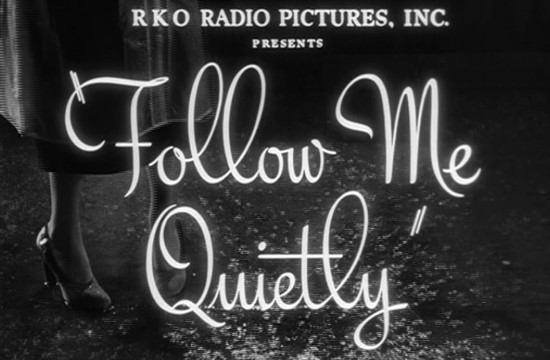
Numbers, Stats. Tweets: 356. Tweets we hope no client rep sees: 334. Silly/stupid/spastic/"Dan doesn't get Twitter yet" tweets: 188. Favorably impressed existing GCs and in-house folks: 0. Favorably impressed targeted GCs and in-house folks: Less than 0. Enemies made from my 356 tweets: Countless. Legion. Never-ending. But also quite inconsequential (they tweet).
International Caché. Number of tweets out of billions and billions in which Charon QC (West London law prof summering Aldeburgh) and Scott Greenfield (Lower Manhattan trial lawyer summering Long Island) have twitted things that helped me in my life, in my work, or to "meet people" in Left Bank, Prague, or Hopkinsville, Kentucky: 1 if you round up.
Other. Best part of Twitter: Good looking people here and there. Worst part: Good looking people with nothing to say. Funniest part: People who think they are liberal and are really not. Weirdest part: Trying to figure out why some people think we need to know what they are doing or thinking. General Wit and Verve Level: Not as Bad as in first report ("nearly Zilch")--but have cut down "followeds" by 50%.
Best Tweet Received: Dead cat found decomposing in golf bag. (Hands down.)
Takes/Notes/Conclusions: Humans still in video game mode re: Tech. Tech tools make most of them dumber while thinking they are smart for using said tools. Twitter has possiblities--but only if direct marketers and 100% anonymous posters are are banned. Strong argument that only age 35+ should participate. "Work much?"
Big Takeaway: Humans still having way way too many babies.
Posted by JD Hull at 11:59 PM | Comments (0)
Richard Nahem: Light in August.
Visit Richard Nahem at his I Prefer Paris.


Posted by Holden Oliver (Kitzbühel Desk) at 11:00 PM | Comments (0)
August 03, 2010
Anonymity on the Net: Prof. Friedman Weighs In.
.jpg)
Case Western's Friedman: A Man in Full
As much as we'd like him back in the saddle for clients, we somehow feel safer that Peter Friedman is teaching. Any more out there like him?
Located in a Midwestern American city that has hatched some of the best, oldest and most enduring law firms ever built, Case Western Reserve's School of Law in Cleveland continues to be a first-rate place. Associate Professor Peter Friedman interests us for that and three additional reasons. In fact, he's commanded our attentions for some months now. By the way, you can read one of his blogs (and our favorite) at Ruling Imagination: Law and Creativity.
First, Peter's an ex-New York City litigation partner at a major firm based in Dallas that was founded, just incidently, by my favorite politician ever. Peter quit Bob Strauss's Akin Gump to teach law after 12 years of practice at that and one other fine firm. During those years, he was in the trenches of planning, strategy and battle for publicly-traded clients.
So this man can help you. He deferred teaching full-time until after more than, say, an 18-month law prof-law firm stint before joining the ranks of a group that, in recent years, has screwed the pooch badly on the education of students.
Which has been a living hell and nightmare for our law firm.
But Peter gets it. He gets it all. So, in a way, we are glad he's teaching what terribly cynical, old and embittered types often refer to as "The Slackoisie". As much as we'd like him back in the saddle for clients, we feel safer. Particularly since we view many of his colleagues as being the chief enablers of law tubbies, the younger folks who decide to be in law school during their prime Cheetos®-inhaling years.
I'd like American law schools to help my firm defray some of the costs of recruiting, developing and paying the delusional and alarmingly helpless young white collar trash, almost always Coif and Law Review stock, who we have fired or--with mixed feelings of relief and self-loathing--have watched quit our firm since 2005.
Don't misunderstand. It is of course our firm's (and yes my) failure, too. But it still "angers" my firm. American law deans and profs--who obviously have bowed to trendy "PC" pressures to coddle mediocrity--have not had the sand, foresight or skill to convey to students that private law practice is very very hard. What goes on during those 6 semesters anyway? You guys took money (students' or their parents') money for that? Whoa.
Second, Peter knows his way around (a) federal courts and (b) an impressive range and array of IP issues. Once again, such a man is useful to higher-end clients. As Julie McGuire and I have gotten to know him a bit more over the last few months, we realize that he's quite a find. Peter is clearly not--due to his past lawyering-life pedigree and current academic gig at a great school--merely the most beautiful maiden in the developing new leper colony of American law academia.
Finally, we like, of course, the fact that overall Peter Freidman supports our view that "Anonymity on the Internet is generally a bad and certainly not a very courageous or exemplary thing". Do see his latest posts in which, frankly, he covers the issues better than we ever did. Do read his fine two back-to-back posts, along with the manic but interesting back-and-forth comments, from last week and yesterday:
"Own your words. Anonymity is cowardice, and cowards aren’t known for their wisdom" (July 22); and
Posted by JD Hull at 11:59 PM | Comments (0)
August 02, 2010
FT: "The Crisis of Middle-Class America".
See this one in Friday's Financial Times by Edward Luce, and with a thanks for the reminder to a fellow concerned and often-visionary Midwesterner, Mr. John Davidson. Excerpt:
What, then, is the future of the American Dream?
Michael Spence, a Nobel Prize-winning economist, whom the World Bank commissioned to lead a four-year study into the future of global growth, admits to a sense of foreboding. Like a growing number of economists, Spence says he sees the Great Stagnation as a profound crisis of identity for America.
For years, the problem was cushioned and partially hidden by the availability of cheap debt. Middle-class Americans were actively encouraged to withdraw equity from their homes, or leach from their retirement funds, in the confidence that property prices and stock markets would permanently defy gravity (a view, among others, promoted by half the world’s Nobel economics prize winners, Spence not included).
That cushion is now gone. Easy money has turned into heavy debt. Baby boomers have postponed retirements. College graduates are moving back in with their parents.
Posted by JD Hull at 11:59 PM | Comments (0)
Discovery: ESI and Rule 26(f)'s meet-and-confer requirement.
Pittsburgh gets hip, smart and ready. If you view Western Pennsylvania as an obtuse, unoriginal and sleepy commercial backwater--an insular ex-steel region where execs from a tiny white male master class daily bark orders to lower castes before hitting the links--please think again. You're 40 years behind.
Do see "In re ESI: Local Rules Enhance Value of Rule 26(f) 'Meet & Confer' " by Joy Flowers Conti, a well-regarded U.S. district court judge, and Pittsburgh lawyer Richard Lettieri. The article appeared in the ABA's The Judges’ Journal, Volume 49, Number 2, Spring 2010. Ironically, most commercial trial lawyers who focus on federal courts know much less about electronically-stored information ("ESI"--routine e-mail, mainly) than they should. Whether you do litigation or transactional work, and especially if your client reps are in-house people or GCs, you'd better know lots.
Judge Conti, and Lettieri, who spent nearly two decades with Big Blue, do know more. Many of the lessons of the Conti-Lettieri article, we might add, are preventative and preemptive for non-litigators. Again, get your transactional people involved. All business lawyers need to get smarter on (1) ESI, (2) Rule 26, Fed. R. Civ. (a short but storied and common sense rule governing discovery generally) and (3) all federal local rules that tweak Rule 26. All three.
.jpg)
It's an important area whether you defend cases against corporations or not. If you represent plaintiffs, of course, you will read it with interest to further your nefarious agendas against Corporate Personhood, Motherhood, Good Crops, and Stock Options. We are watching you guys.
Finally, you may want to take time out to learn about ESI and discovery. If you do, see along with the Conti-Lettieri piece: (1) Fed. R. Civ. P. 26--"Duty to Disclose; General Provisions Governing Discovery", (2) its 45 years of Advisory Committee Notes, and (3) the fine work and thinking reflected, and discussed in the article, in W.D. Pa. Local Rule 26.2, which you can pick up here and below.
LCvR 26.2 DISCOVERY OF ELECTRONICALLY STORED INFORMATION (U.S. District Court for the Western District of Pennsylvania)
A. Duty to Investigate. Prior to a Fed. R. Civ. P. 26(f) conference, counsel shall:
1. Investigate the client's Electronically Stored Information ("ESI"), such as email, electronic documents, and metadata, and including computerbased and other digital systems, in order to understand how such ESI isstored; how it has been or can be preserved, accessed, retrieved, and produced; and any other issues to be discussed at the Fed. R. Civ. P. 26(f) conference, including the issues in LCvR 26.2.C.
2. Identify a person or persons with knowledge about the client's ESI,
with the ability to facilitate, through counsel, preservation and discovery of ESI.B. Designation of Resource Person. In order to facilitate communication and cooperation between the parties and the Court, each party shall, if deemed necessary by agreement under LCvR 26.2.C.7 or by the Court, designate a single resource person through whom all issues relating to the preservation and production of ESI should be addressed.
C. Duty to Meet and Confer. At the Fed. R. Civ. P. 26(f) conference, and upon a later request for discovery of ESI, counsel shall meet and confer, and attempt to agree, on the discovery of ESI, including:
1. The steps the parties have taken to preserve ESI;
2. The scope of ESI discovery and an ESI search protocol, including methods to filter the data, such as application of search terms or date ranges;
3. Procedures to deal with inadvertent production of privileged information under LCvR 16.1.D;
4. Accessibility of ESI, including but not limited to the accessibility of back-up, deleted, archival, or historic legacy data;
5. The media, format and procedures for preserving and producing ESI, including the media, format, and procedures for the Fed. R. Civ. P. 26(a)(1) initial disclosures;
6. Allocation of costs of preservation, production, and restoration (if possible and/or necessary) of any ESI;
7. The need for a designated resource person, as discussed in Section B above; and
8. Any other issues related to ESI.
Comment (June 2008)
1. LCvR 26.2.A.1 imposes a duty for counsel to discuss ESI with their client. It does not, in any way, alter a party's and counsel's obligations under law to preserve evidence, including ESI, when litigation is reasonably anticipated. Nothing in this section precludes a party from moving the Court for an appropriate preservation order.
2. Regarding LCvR 26.2.A.2, the person may be an individual party, a party's employee, a third-party, or a party's attorney. Local Rules of Court Western District of Pennsylvania December 1, 2009 22.
3. Regarding LCvR 26.2.B, the resource person must have sufficient familiarity with the party's ESI to meaningfully discuss technical issues and provide reliable information relative to the preservation and production of ESI. The resource person is permitted to, and, in fact, encouraged to, involve persons with technical expertise in these discussions, including the client, client's employee, or a third party. The resource person may be an individual party, a party's employee, a third party, or a party's attorney, and may be the same person referenced in LCvR 26.2.A.2.
4. Regarding LCvR 26.2.C, the parties have an ongoing obligation to supplement their disclosures. See Fed. R. Civ. P. 26.
5. Regarding LCvR 26.2.C.1, it may be necessary to segregate ESI in order to properly preserve it.
6. Regarding LCvR 26.2.C.4, "accessibility" is used in the same manner as Fed. R. Civ. P. 26(b)(2)(B) ("A party need not provide discovery of [ESI] from sources that the party identifies as not reasonably accessible because of undue burden or cost.").
7. Regarding LCvR 26.2.C.5, the media, format, and procedures for preserving ESI may differ from the media, format, and procedures for producing ESI. For example, a party may preserve ESI in native format, and the parties may agree on production in a different format. See Fed. R. Civ. P. 34(b).
LCvR 26.3 CERTIFICATION BY SERVING OR FILING ELECTRONIC DOCUMENTSUnless actual notice to the contrary is given in writing by the serving party, service under these Local Civil Rules of any Electronic document containing an electronic representation of the original signature of any person shall constitute a certification by the server that as of the time of service he or she is in possession
of the signer's actual original signature on a hard copy of the electronic document served. Service by a party or any counsel under LCvRs 33, 34 or 36 of responses to interrogatories, requests for Lroduction or requests for admission ("Written Discovery") shall constitute a certification by the server of such responses that no alteration has been made to the Written Discovery as originally served upon such party or counsel. The filing with the Court for any purpose by any party or counsel of Written Discovery or responses thereto served in electronic form pursuant to LCvRs 33, 34 and 36 shall constitute the certification by such party or counsel that the content of such electronic document so filed is the same as when it was served or received by the filing party.
Posted by Holden Oliver (Kitzbühel Desk) at 11:59 PM | Comments (0)
Rhinebeck: No one throws a party like Wild Bill.
No one. Ever. And Everyone likes him. NYT.
.jpg)
Posted by JD Hull at 12:59 AM | Comments (0)
August 01, 2010
If your U.S. client trades abroad, the UCC won't always give you the answer.
If you buy and sell in the global markets, make the UN Convention on Contracts for the International Sale of Goods (CISG) your friend.
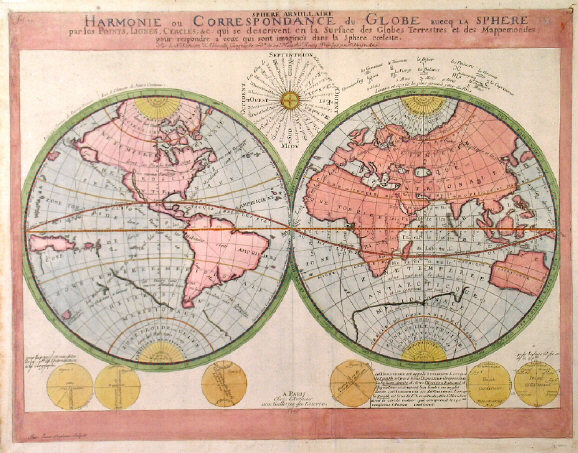
If your day job is like ours, it's not off-the-wall for a longstanding client to call on a Friday afternoon with a question about a clause in a 10-year old contract under which the client, a U.S. widget manufacturer, is selling widgets to a Norwegian distributor. "No problem," you think. And you tell her: "Let me look at the Uniform Commercial Code, preliminarily. We'll start there, of course. I will call you back."
Be careful there, fancy lawyer. Commercially, we live in a world that never sleeps. Every minute during these last 40 or so nervous months, deals are still struck and goods still change hands.
In cases of international sales of goods, the Uniform Commercial Code--or UCC, adopted by 49 states to create a standardized law for commercial transactions in the U.S.--is often preempted by the federally-adopted United Nations Convention on Contracts for the International Sale of Goods (1980) (often the "CISG").
A multinational treaty that provides a uniform law for international sales of goods, the CISG was signed in 1980--and has been ratified by over 70 countries. While the CISG is similar to the UCC, there are differences, and some are major. For example, unlike the UCC, the CISG generally does not require any contract for the sale of goods to be in writing. More importantly, unless the terms of a sales contract between parties from participating countries expressly exclude the CISG, the CISG is deemed to govern the contract.
By the way, don't guess on Contracting States, or signers, either. The U.S. adopted the CISG in 1988. Australia, most of Europe and parts of Asia, Africa and South America have also adopted the CISG.
One notable holdout: the United Kingdom.
Note: Courtesy of Pace Law School, in White Plains, New York: for U.S. citation purposes, the United Nations-certified English text is published in 52 Fed. Reg. 6262, 6264-6280 (March 2, 1987); United States Code Annotated, Title 15, Appendix (Supp. 1987).
Posted by JD Hull at 11:59 PM | Comments (0)
Redux: Andy Grove on U.S. jobs: "Rebuild our industrial commons".
At Bloomberg, see Grove's truly maverick "How to Make an American Job Before It's Too Late". Three excerpts:
[P]lowing capital into young companies that build their factories elsewhere will continue to yield a bad return in terms of American jobs.
We should develop a system of financial incentives: Levy an extra tax on the product of offshored labor. (If the result is a trade war, treat it like other wars -- fight to win.) Keep that money separate. Deposit it in the coffers of what we might call the Scaling Bank of the U.S. and make these sums available to companies that will scale their American operations.
Such a system would be a daily reminder that while pursuing our company goals, all of us in business have a responsibility to maintain the industrial base on which we depend and the society whose adaptability--and stability--we may have taken for granted.
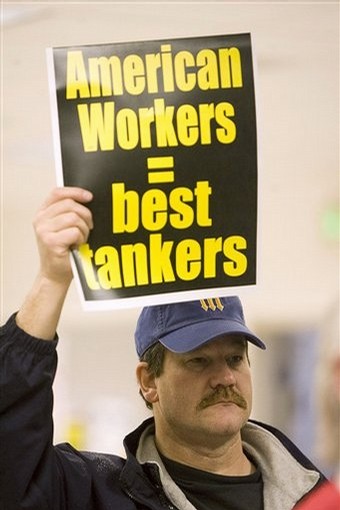
Agreed. But will this be true in 20 years?
Posted by JD Hull at 12:28 AM | Comments (6)